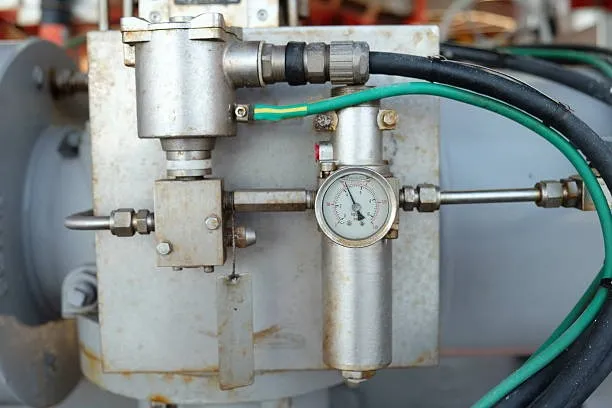
Boiler Tune-Up in West Chester, PA
Keeping your boiler tuned and running reliably is essential in West Chester, PA, where cold winters and older, radiator-style homes make dependable hydronic heating a priority. A professional boiler tune-up restores efficiency, prevents midseason failures, and reduces safety risks like carbon monoxide exposure.
Why a boiler tune-up matters in West Chester, PA
West Chester experiences long heating seasons and occasional deep freezes. Many homes in the area rely on boilers that are decades old or installed in tight basements and mechanical closets. These factors increase wear, scale buildup, and the chance of combustion or venting problems. A timely tune-up:
- Restores fuel-to-air combustion balance for safer operation
- Improves heat distribution and responsiveness across radiators or baseboards
- Lowers energy use and utility bills by improving efficiency
- Reduces the risk of breakdowns during the coldest days
- Identifies developing faults before they become emergency repairs
Common boiler problems in West Chester homes
- Yellow or sooty flame from burners indicating incomplete combustion
- Fluctuating or low boiler pressure, causing uneven heating
- Cold spots on radiators or noisy piping due to trapped air or zone valve issues
- Scale or mineral deposits inside the heat exchanger in homes with hard water
- Frequent short-cycling from faulty controls or incorrect combustion settings
- Cracked or clogged flue and venting components from age or corrosion
- Faulty safety controls or pressure relief valve concerns from lack of service
What a full boiler tune-up includes
A professional tune-up is a methodical service that covers inspection, cleaning, adjustment, testing, and documentation. Typical elements include:
- Initial visual and safety inspection
- Check for leaks, corrosion, and proper clearances
- Inspect venting, chimney, and combustion air supply
- Verify pressure relief valve and expansion tank condition
- Combustion system cleaning
- Clean burners and pilot assembly of soot and debris
- Remove scale or soot from heat exchanger surfaces where accessible
- Clean or replace air filters and check burner alignment
- Combustion adjustment and testing
- Perform combustion analysis to measure oxygen, carbon monoxide, and stack temperatures
- Adjust gas/air mixture to achieve manufacturer combustion specifications
- Confirm flue gases vent correctly and safely
- Controls and safety checks
- Test thermostat, aquastat, pressure and temperature controls
- Inspect and test safety interlocks, low-water cutoff, and other protections
- Verify operation of circulating pumps, zone valves, and motor starters
- Efficiency and performance checks
- Measure system operating temperature differentials and boiler efficiency indicators
- Check for short cycling or delayed ignition problems
- Confirm even heat distribution across zones and radiators
- System maintenance tasks
- Bleed air from radiators and verify zone balancing
- Flush condensate lines on high-efficiency condensing boilers
- Add corrosion inhibitor when appropriate for hydronic systems
- Provide a written summary of findings and recommended follow-up
Diagnostic approach: how technicians find the root cause
Technicians follow a step-by-step diagnostic flow to be efficient and accurate:
- Gather history: ask about recent noises, cold rooms, or higher fuel bills
- Visual inspection to prioritize immediate safety fixes
- Instrumented combustion testing to quantify efficiency and safety
- Functional checks on pumps, valves, and controls to identify mechanical faults
- Isolate and address root causes—cleaning burners, adjusting combustion, or replacing failing controls—rather than temporary fixes
Typical time required and expected outcomes
- Most tune-ups for standard residential boilers take 60 to 90 minutes when no major repairs are needed.
- Older or more complex systems, multi-zone installations, or boilers requiring significant cleaning or minor repairs can take 90 to 150 minutes.Expected outcomes after a complete tune-up:
- Cleaner, stable blue flame and proper venting
- Measurable improvement in combustion efficiency and likely lower fuel use
- More consistent home temperatures and quieter operation
- Reduced chance of breakdowns and longer boiler life
- A clear report with prioritized recommendations for repairs or upgrades
When a tune-up leads to follow-up work
A tune-up sometimes reveals issues that require repair or replacement:
- Worn ignition components, gas valves, or motorized zone valves
- Cracked heat exchangers or severely corroded flue sections
- Failed safety controls like low-water cutoffs that must be addressed immediately
- Extensive scaling that needs a professional chemical flush or mechanical cleaningWhen follow-up is necessary, technicians typically separate diagnostic results from repair scope so you can make informed decisions.
Maintenance plan recommendations for West Chester homeowners
For homes in West Chester with regular heating needs, a maintenance plan provides predictable care and additional value:
- Annual or biannual inspections timed before and after the heating season
- Priority scheduling during peak cold snaps and discounts on parts or labor
- Seasonal system checks, filter service, and recordkeeping of system history
- Guidance on water treatment for closed-loop systems in hard water areas
- Proactive replacement schedules for controls or safety devices approaching end of life
Regular tune-ups tied to a maintenance plan reduce emergency service calls and preserve efficiency over the life of the boiler.


Enjoy flexible financing options that make upgrading or repairing your HVAC system easy and budget-friendly.










